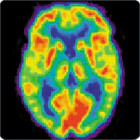The Georgia Bureau of Investigation in Decatur is getting a fresh infusion of money from the Justice Department to fight child prostitution and other forms of sex exploitation. A 300- thousand dollar grant will go towards reaching children in trouble and arresting adults who exploit them, according to the Office of Justice Programs.
To emphasize the work that’s being done in the Atlanta area, federal prosecutors released new information about three men who were sentenced and four others arrested for child sex crimes, including these cases:
Former Baptist Minister Gregory Hunter, who got 18 years in prison for producing a pornographic webcast of a 9 year old girl. Former doctor Adam Lebowitz, convicted of child porn and trying to entice a child to have sex
Michael Young and James Lampru,arrested at hotels where they arranged to have sex with a 12-year-old girl
Earlier this week, a 280 page report from Attorney General Eric Holder detailed a national strategy to fight child sex exploitation. The GBI has received other grants to fight Atlanta’s child prostitution and pornography problems. In 2009, the GBI got $1,438,937.00in Recovery Act funds for the Internet Crimes Against Children Task Force. During the first half of last year, the ICAC made 96 arrests and helped local law enforcement with 60 cases. Read more:
Project Safe Childhood
Internet Crimes against Children Task Force
News Release from Department of Justice




